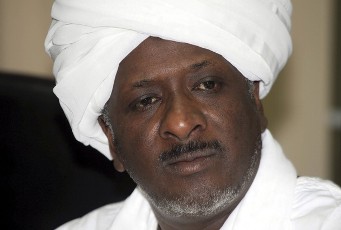Sudan finance minister says economy will soon recover
September 11, 2013 (KHARTOUM) – The Sudanese finance minister, Ali Mahmoud Abdel-Rasool, has said that Sudan’s economy will gradually restore its positive standing and recalled the country’s resilience over the last decade saying that between 2003-2010 the Gross Domestic Product (GDP) which went from $10 to $65 billion with a 4% growth rate and a stable exchange rate.

He pointed out that the first round of cutting fuel subsidies which was implemented last year brought about positive results leading to a decline in inflation rate from 40% to 20% last August.
Sudan lost 75% of its oil reserves after the southern part of the country became an independent nation in July 2011 denying the north billions of dollars in revenues.
Prior to the country’s breakup, Sudan produced close to 500,000 barrels but now its output is limited to 140,000 barrels per day. Oil revenue constituted more than half of the Sudan’s revenue and 90% of its exports.
Khartoum was forced to introduce a contractionary budget that saw the partial lifting of fuel and food subsidies which triggered rare but small demonstrations across the country.
The government defended the measures saying that the country can no longer afford to pay for these subsidies.
The Sudanese official lauded the former state finance minister, Abdel-Rahman Dirar, whom he said played a significant role in implementing the 2012 lifting of fuel subsidies.
The head of Sudan workers union, Ibrahim Ghandour, for his part, disclosed that an increase in minimum wages will range from 11% to 55% according to the wage structure, adding that the finance ministry agreed to reduce taxes on drugs and continue subsidizing wheat and electricity.
On Wednesday, presidential directives were issued following a meeting between the vice president, Al-Hag Adam Youssef, and Ghandour for making immediate moves to control commodities prices particularly the basic goods prior to the implementation of the decision to lifting fuel subsidies in order to assure the Sudanese people that prices will be under control.
But several economists assert that the minimum wage increase will not exceed 70 pounds (SDG) which is not enough to allay fears by government employees due to the expected increase in inflation rate resulting from lifting fuel subsidies.
Ghandour said that minimum wage increase will be applied retrospectively from January 2013.
(ST)
